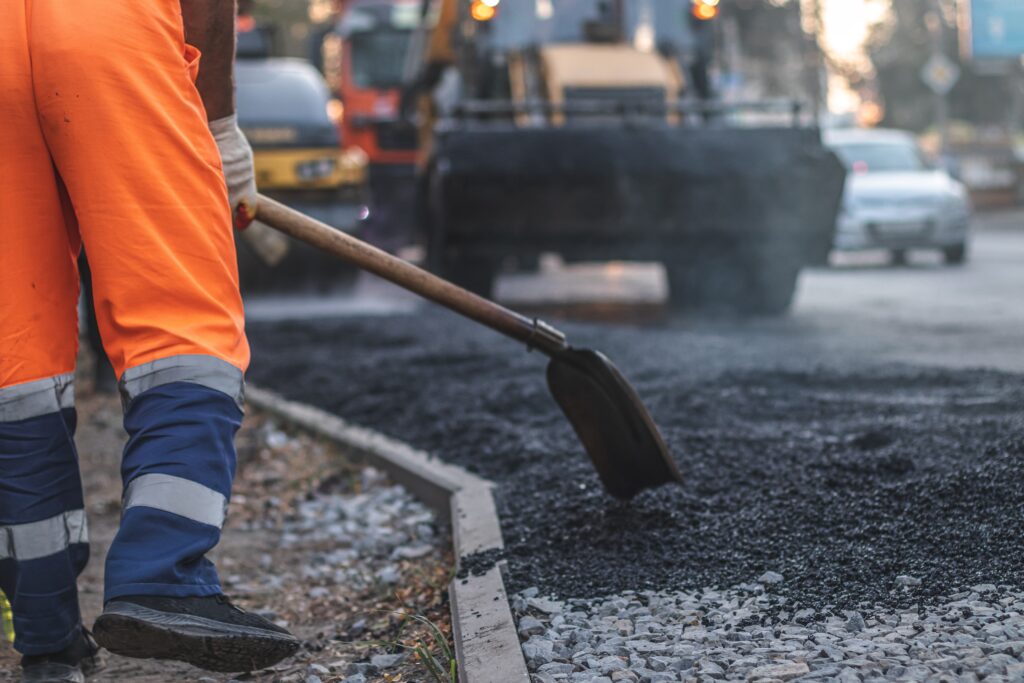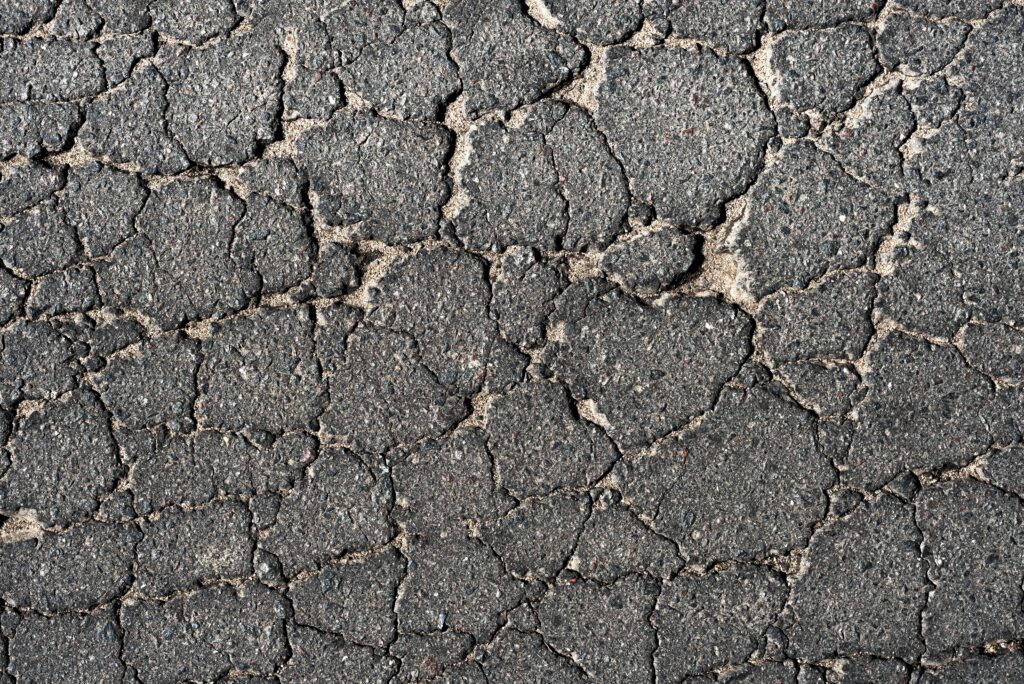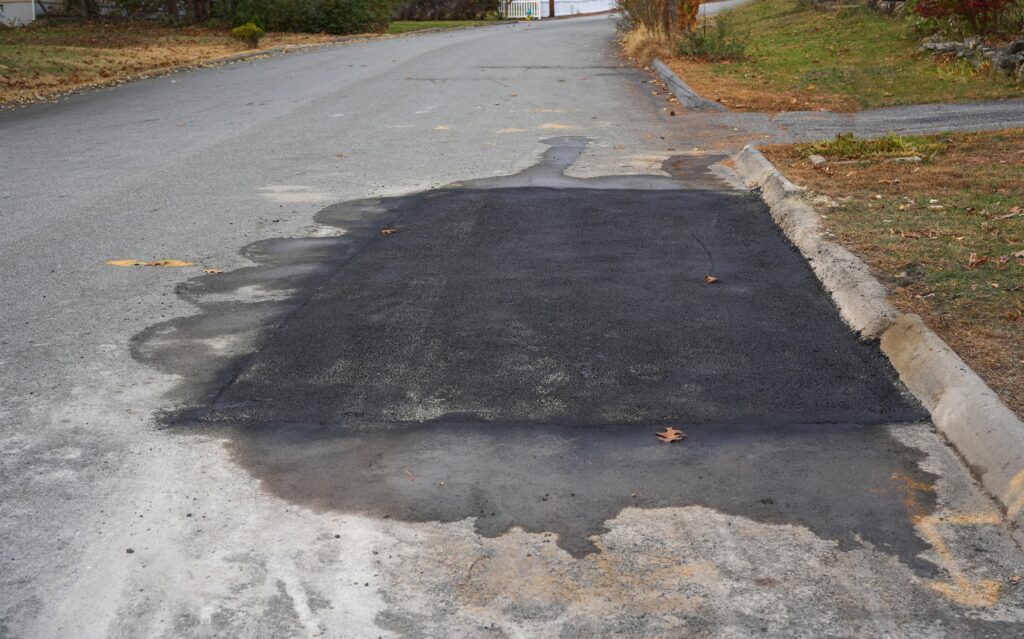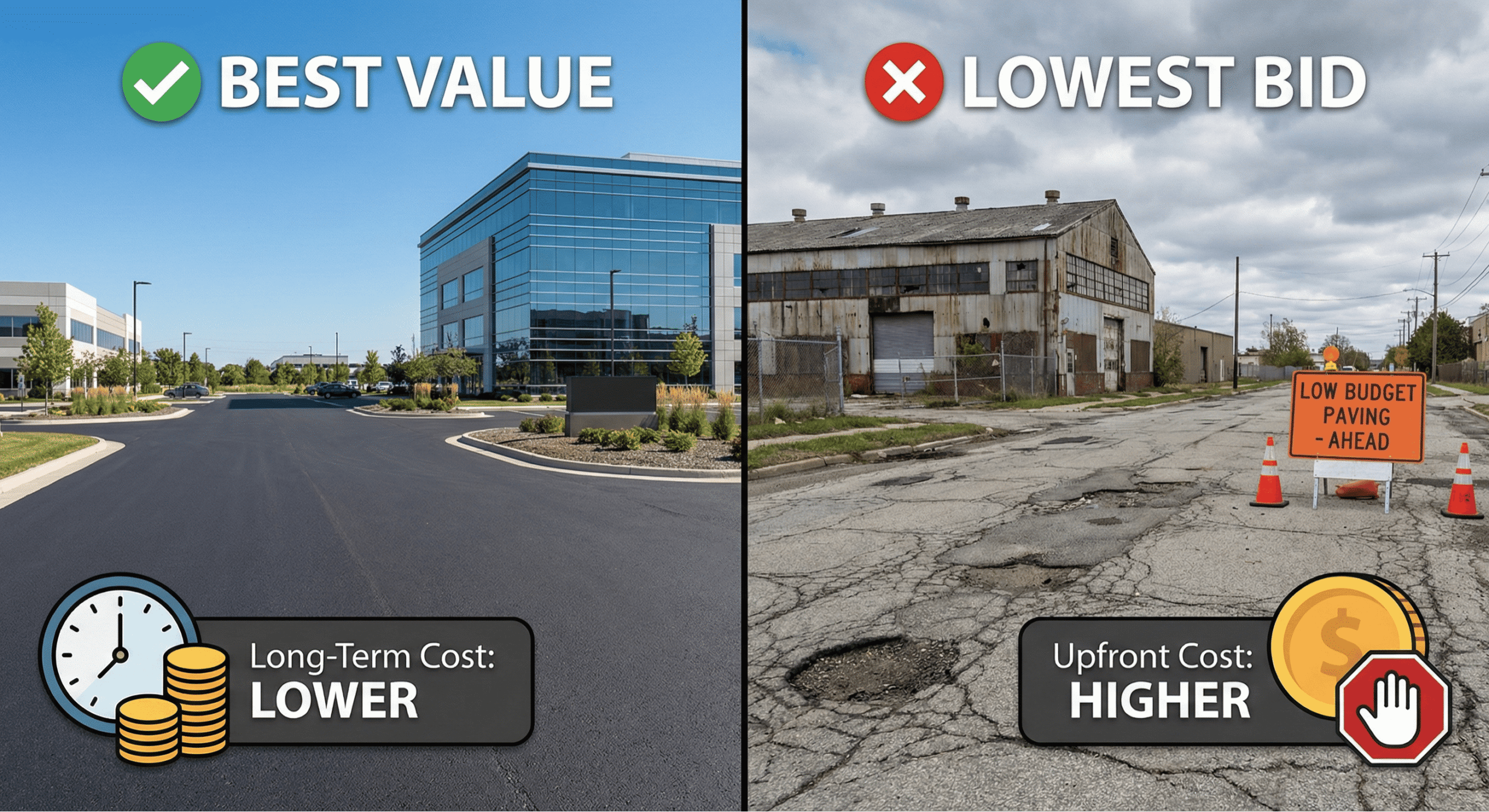
As Denver grows rapidly, sustainability has become a top priority in every construction project, including road and pavement design. Eco-friendly asphalt solutions help reduce carbon emissions, conserve energy, and minimize waste without compromising quality or performance.
For example, a survey by the National Asphalt Pavement Association (NAPA) found that reclaiming approximately 97 million tons of asphalt pavement in 2019 saved about 58.9 million cubic yards of landfill space. From recycled materials to energy-efficient paving methods, these innovations are redefining how asphalt is produced and applied.
These sustainable approaches not only benefit the environment but also deliver long-term cost savings and durability, making them ideal for Denver’s infrastructure goals.
Why Sustainable Asphalt Solutions Matter in Denver
Denver’s unique mix of heavy traffic, high altitude, and temperature extremes demands durable yet environmentally responsible pavement materials. Traditional asphalt production contributes significantly to greenhouse gas emissions, but modern eco-friendly sealcoating methods are helping change that narrative.
As cities like Denver move toward carbon neutrality, sustainable paving solutions play a crucial role in achieving greener urban infrastructure. Understanding how Denver’s urban growth demands quality asphalt paving services is essential for long-term planning.
Key benefits include
- Reduction in heat absorption through cooler pavements.
- Lower lifecycle emissions from recycled materials.
- Extended pavement life with less frequent resurfacing.
- Improved stormwater management through permeable designs.
Understanding the Environmental Impact of Traditional Asphalt
Before exploring eco-friendly alternatives, it’s important to understand how traditional asphalt affects the environment. Standard production methods rely heavily on fossil fuels, producing substantial carbon dioxide, nitrogen oxides, and particulate matter.
These emissions not only impact local air quality but also contribute to climate change, making greener alternatives more essential than ever.
Major challenges of traditional asphalt
- High fuel consumption during heating and mixing.
- Release of volatile organic compounds (VOCs).
- Increased surface temperatures contribute to the urban heat island effect.
- Excess waste from old pavement disposal.
Innovative Green Asphalt Technologies and Recycled Materials
Modern asphalt innovations are transforming how Denver builds roads that balance durability, performance, and environmental responsibility. These solutions not only cut emissions but also reuse valuable materials that would otherwise end up in landfills.
As sustainability becomes central to Denver’s infrastructure strategy, several advanced methods are leading this transformation.
- Warm-Mix Asphalt (WMA): Produced at lower temperatures, it reduces fuel consumption and greenhouse gas emissions by up to 30%.
- Reclaimed Asphalt Pavement (RAP): Reuses old pavement material, reducing waste and conserving natural aggregates.
- Recycled Asphalt Shingles (RAS): Incorporates roofing waste into pavement, enhancing strength and minimizing landfill use.
- Bio-Based Binders: Replace petroleum-based materials with plant-derived alternatives for a smaller carbon footprint.
- Porous Asphalt: Improves water drainage and reduces urban heat island effects in dense areas.
These breakthroughs set a strong example for Denver’s climate-focused construction standards, positioning the city at the forefront of eco-friendly infrastructure innovation.
Warm-Mix Asphalt: Cutting Emissions Through Lower Temperatures
Traditional hot-mix asphalt requires high production temperatures that consume large amounts of fuel. In contrast, Warm-Mix Asphalt (WMA) can be produced at 50–100°F lower temperatures while maintaining the same strength and durability.
This innovation significantly cuts fuel consumption and emissions during both production and paving, making it ideal for Denver’s sustainability goals.
Benefits of WMA include:
- 30–40% reduction in energy use during production.
- Faster cooling, allowing quicker project completion.
- Improved worker safety with reduced fumes.
- Extended paving season due to lower temperature requirements.
Recycled Asphalt Pavement: Closing the Loop in Road Construction
Recycled Asphalt Pavement (RAP) reuses material from old or damaged roads to create new asphalt layers. This circular approach conserves resources and reduces landfill waste, aligning perfectly with Denver’s sustainability framework.
By recycling and reprocessing old pavement, RAP provides the same structural strength at a fraction of the environmental impact.
Key advantages include:
- Use of 15–30% reclaimed materials reduces demand for virgin aggregates.
- Lower production costs due to recycled content.
- Proven durability in both residential and municipal projects.
- Reduced waste generation and hauling requirements.
Reclaimed Asphalt Shingles (RAS): Turning Waste into Strength

Reclaimed Asphalt Shingles (RAS) take recycling a step further by incorporating discarded roofing shingles into asphalt mixtures. These shingles contain high-quality asphalt binders and durable granules that enhance pavement performance.
In Denver’s push for zero waste, RAS offers a way to turn common construction debris into a valuable road material.
Major benefits of RAS integration
- Diverts millions of tons of shingles from landfills each year.
- Adds durable binder content, improving asphalt stiffness and strength.
- Enhances rutting resistance in high-traffic pavements.
- Lowers overall production costs by reducing virgin binder usage.
According to the Minnesota Department of Transportation’s RAS Research Report, adding up to 5% RAS in pavement mixes can extend road life by 15–20% without affecting flexibility (MnDOT.gov PDF).
How Porous Asphalt Supports Cleaner, Greener, and Safer Cities
Porous asphalt is designed with open spaces that allow water to pass through the pavement and into the ground below. This design helps reduce stormwater runoff and supports groundwater recharge, a critical advantage in Denver’s increasingly unpredictable weather patterns.
As rainfall events become more intense, porous asphalt helps cities manage drainage naturally while supporting eco-friendly infrastructure.
Environmental advantages
- Reduces stormwater runoff by up to 80%.
- Prevents flooding and erosion in urban zones.
- Filters pollutants before they enter waterways.
- Improves water quality and urban heat reduction.
Implementing Sustainable Asphalt Practices in Denver
Adopting eco-friendly asphalt isn’t just about materials; it’s about how they’re applied, maintained, and managed over time. Denver’s sustainability goals rely on strategic planning, data-driven construction, and responsible resource management to ensure long-term performance with minimal environmental impact.
- Optimized pavement designs that use locally sourced and recycled materials to reduce transportation emissions.
- Energy-efficient asphalt plants equipped with modern burners that minimize greenhouse gas output.
- Lifecycle-based maintenance planning to extend road lifespan while reducing waste generation.
- Moisture and temperature management systems to improve asphalt durability under Denver’s diverse climate.
- Use of renewable binders such as bio-asphalt to reduce dependency on petroleum-based products.
Smart Pavement Design and Planning for Long-Term Durability
Proper pavement design is the foundation of sustainability. Engineers in Denver now use data modeling and material performance simulations to optimize every stage, from mix selection to drainage design.
This proactive planning reduces waste, energy use, and maintenance frequency throughout a project’s lifespan.
Key sustainable planning strategies include:
- Using local aggregates to minimize transportation emissions.
- Designing pavement thickness based on real-time traffic load data.
- Implementing reflective coatings to reduce surface heat absorption.
Proactive Maintenance Strategies for Long-Lasting Pavements
Even the most advanced materials need consistent upkeep to perform sustainably. Preventive maintenance, such as crack sealing, sealcoating, and overlaying, extends asphalt life while minimizing the need for full reconstruction.
When properly maintained, eco-friendly pavements retain their environmental and economic benefits for decades.
Maintenance best practices:
- Schedule annual inspections to detect and repair minor surface damage early.
- Apply a sealcoat every 3–5 years to protect against oxidation.
- Use recycled or bio-based sealants to preserve eco-friendly performance.
Sustainable Contractor Partnerships and Their Impact on Communities
Sustainability is a collaborative effort. Partnering with certified asphalt contractors ensures eco-friendly standards are met during material sourcing, production, and installation. In Denver, this also fosters local employment and community involvement in green initiatives.
By prioritizing responsible contractors, property owners, and developers contribute directly to Denver’s environmental progress.
Key partnership benefits:
- Verified use of recycled and energy-efficient materials.
- Compliance with Denver’s green construction codes.
- Long-term warranties that ensure accountability and quality.
Building a Greener Denver, One Road at a Time

Sustainable asphalt isn’t just a trend; it’s Denver’s pathway to a cleaner, longer-lasting infrastructure future. By integrating warm-mix asphalt, recycled materials, and porous pavement designs, the city is cutting emissions, conserving energy, and creating roads that endure Denver’s demanding climate.
With strategic design and eco-focused maintenance, these solutions lower lifecycle costs and boost long-term performance, proving that sustainability and strength can go hand in hand.
Contact Asphalt Coatings Company today to explore customized, eco-friendly asphalt solutions built for Denver’s future.
Frequently Asked Questions
What makes asphalt eco-friendly?
Eco-friendly asphalt uses recycled materials like reclaimed asphalt pavement (RAP) and warm-mix technologies that require less fuel during production. These methods reduce emissions, conserve natural resources, and minimize landfill waste.
How does recycled asphalt perform compared to new asphalt?
Recycled asphalt performs nearly the same as traditional mixes. With proper processing and maintenance, it delivers equal durability and strength while reducing material costs and environmental impact.
Is warm-mix asphalt suitable for Denver’s climate?
Yes. Warm-mix asphalt (WMA) is ideal for Denver’s variable weather. It can be produced at lower temperatures, allowing faster cooling, safer handling, and extended paving seasons even in cooler months.
What are the benefits of porous asphalt?
Porous asphalt allows water to drain through the pavement, reducing runoff and preventing flooding. It also improves groundwater recharge and helps lower urban heat, making it perfect for Denver’s storm-prone areas.
How can contractors ensure asphalt sustainability in their projects?
Contractors can adopt sustainable practices by using recycled materials, sourcing locally, maintaining pavements regularly, and complying with Denver’s green construction standards. Partnering with certified eco-friendly asphalt contractors ensures long-term, sustainable results.



